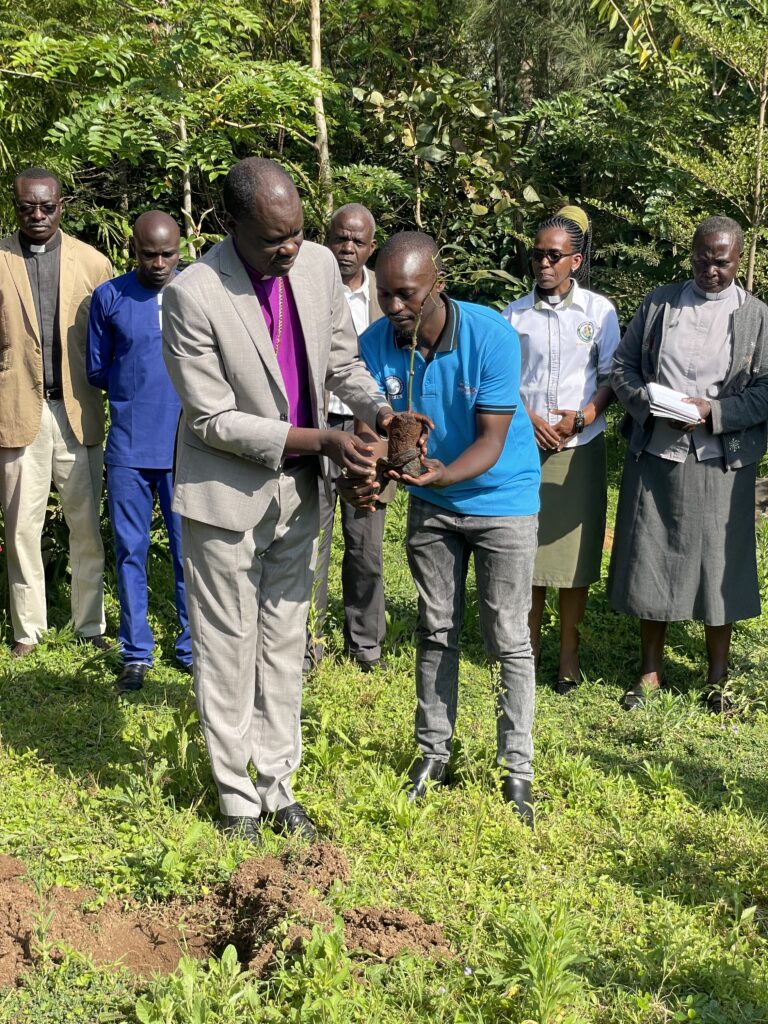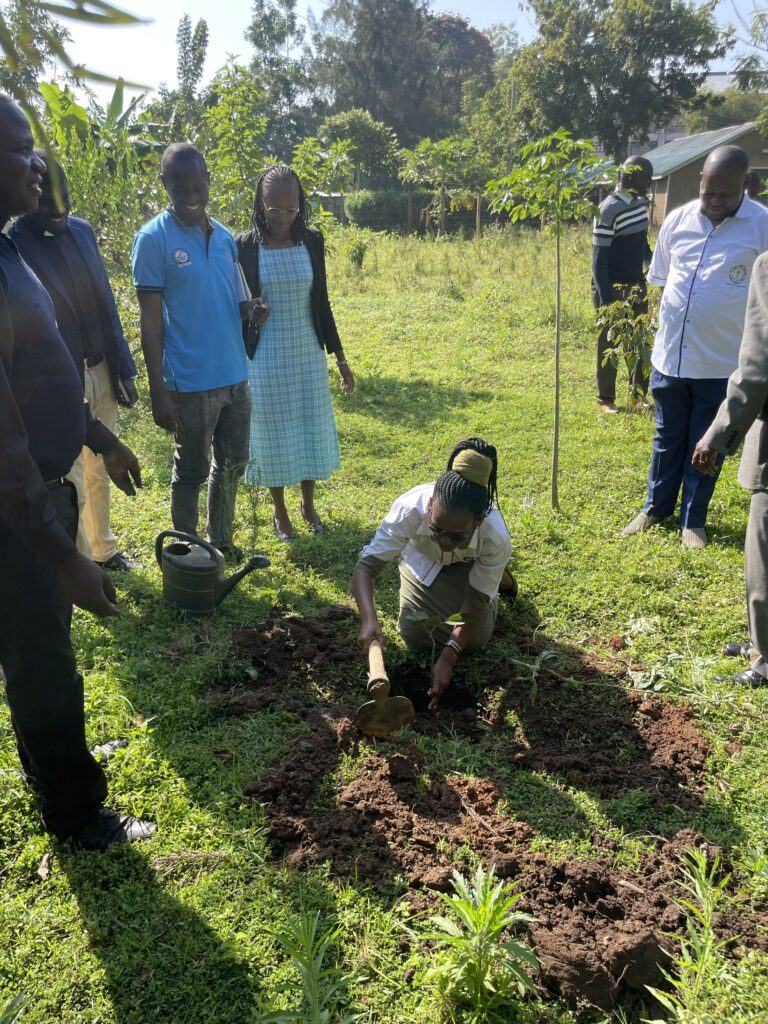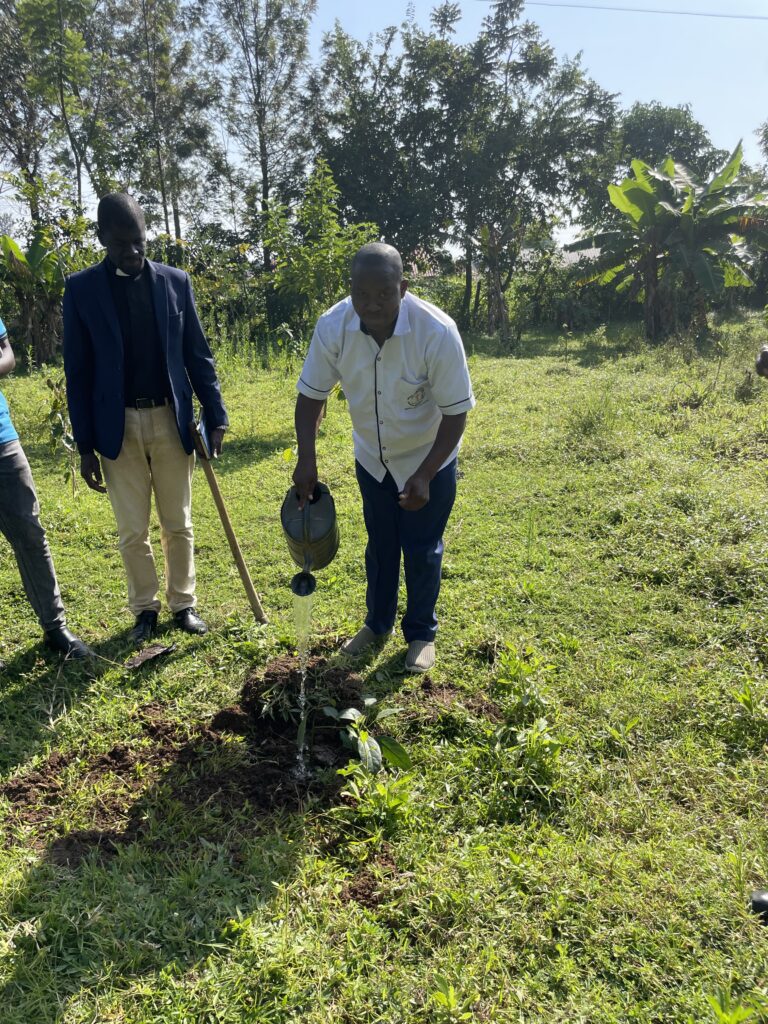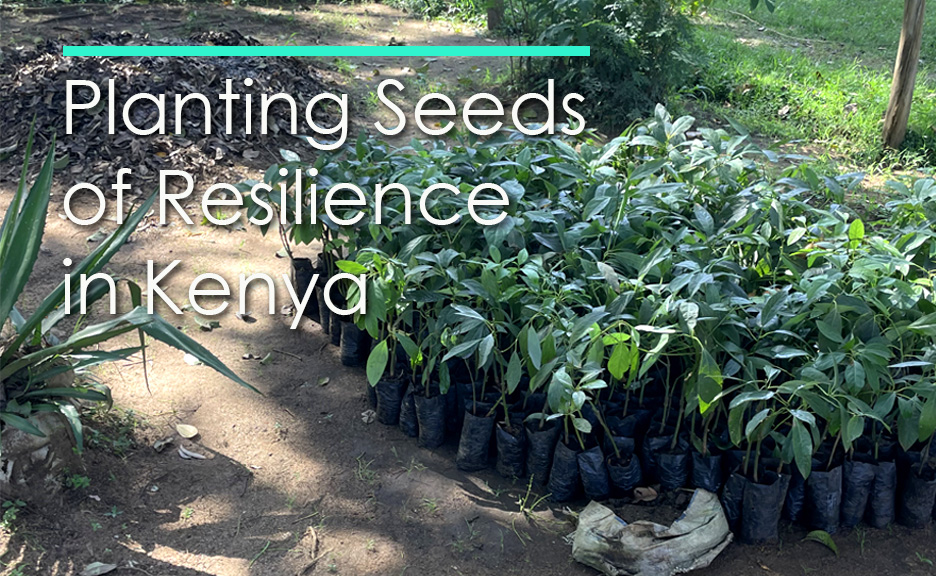Climate-smart Initiative Helps Expand Water Access Efforts
A new climate-smart initiative is now underway in western Kenya, where our trusted partner SAWASHI has launched a value-added project to enhance community resilience through the planting of fruit trees in conjunction with existing water supply infrastructure. Building on years of successful WASH collaboration in Kakamega County, this latest project integrates environmental sustainability, nutrition, and livelihood support into the Diocese of Mumias’ expanding water access efforts.
The initiative—being implemented in partnership with the Anglican Church of Kenya, Diocese of Mumias—aims to plant 1,200 fruit trees across several community sites. These orchards will be supported by nearby SAWASHI-installed boreholes and water systems, ensuring a reliable water source for both people and plants. The project will benefit parishioners and surrounding communities by improving access to nutritious fruits, providing environmental education, and generating future income from the sale of surplus harvests.
Strengthening Climate Resilience
This innovative approach not only enhances food security and nutrition but also strengthens climate resilience. Fruit trees play a vital role in carbon sequestration, soil health, and sustainable water use—key factors in mitigating the effects of climate change that have increasingly threatened the region. The Diocese, long recognized for its leadership in environmental stewardship, sees this as a natural extension of its mission to care for creation.
Training, community mobilization, and market linkages are all part of the implementation plan. Ongoing monitoring and evaluation will track outcomes including survival rates of the trees, participation in environmental education sessions, and increased awareness of sustainable practices.
Long-term Sustainability
WEFTA is proud to support this work alongside SAWASHI as part of our shared vision of integrated, community-led development. This project exemplifies how combining clean water access with complementary initiatives like agroforestry can multiply impact—and plant the seeds for long-term sustainability.




